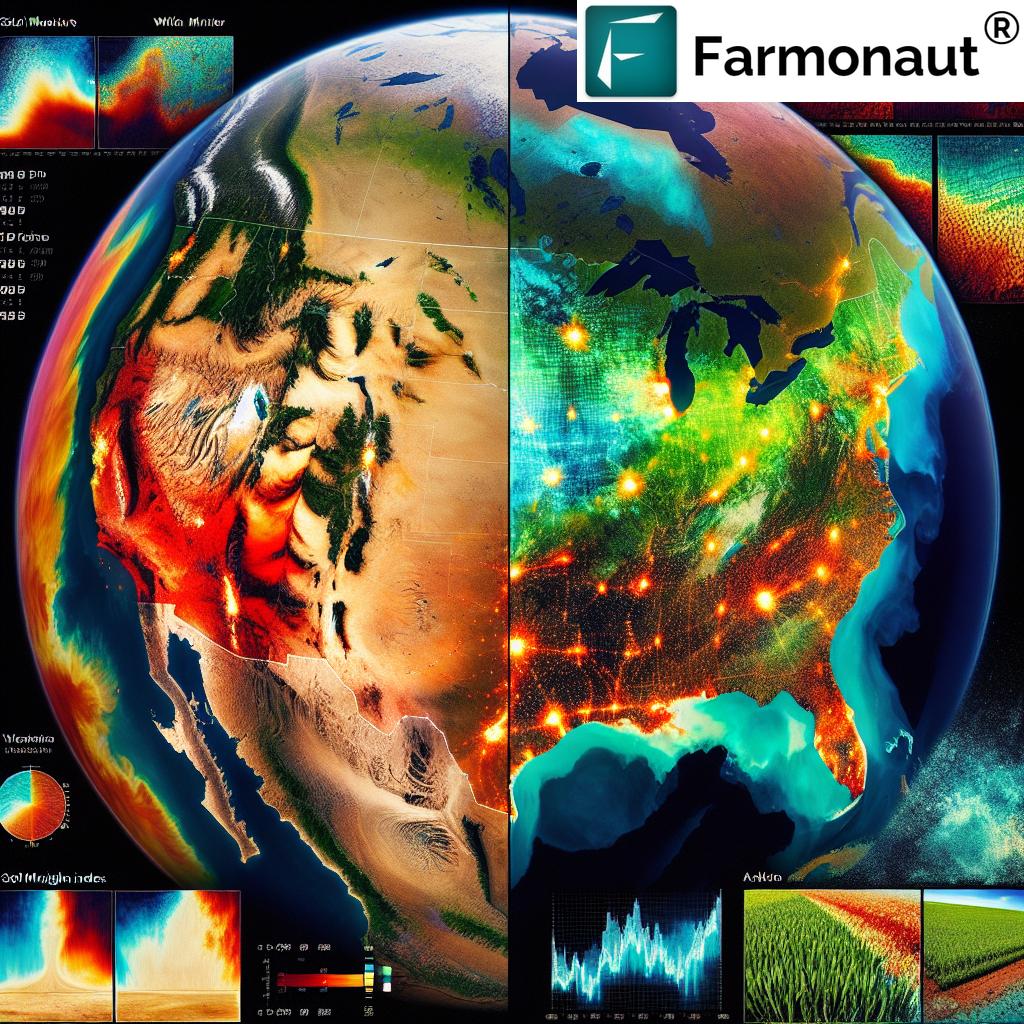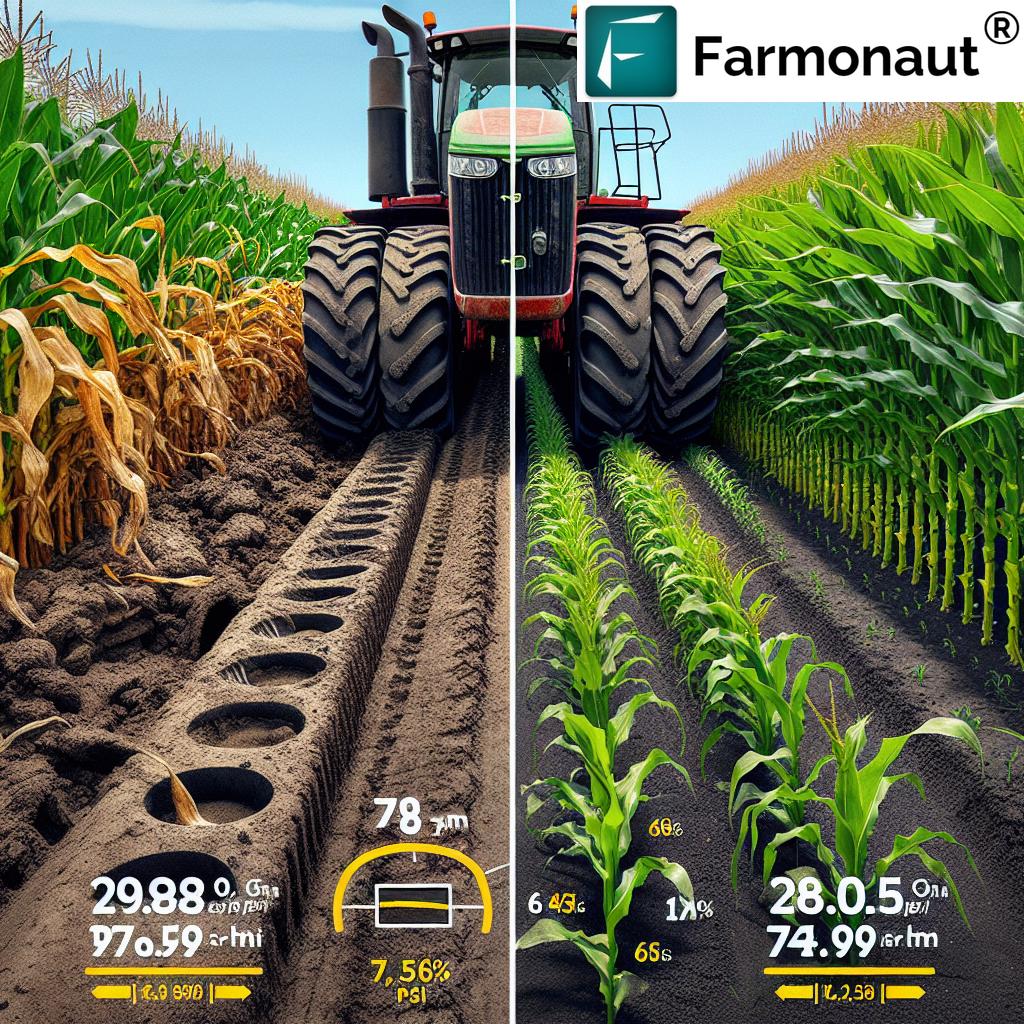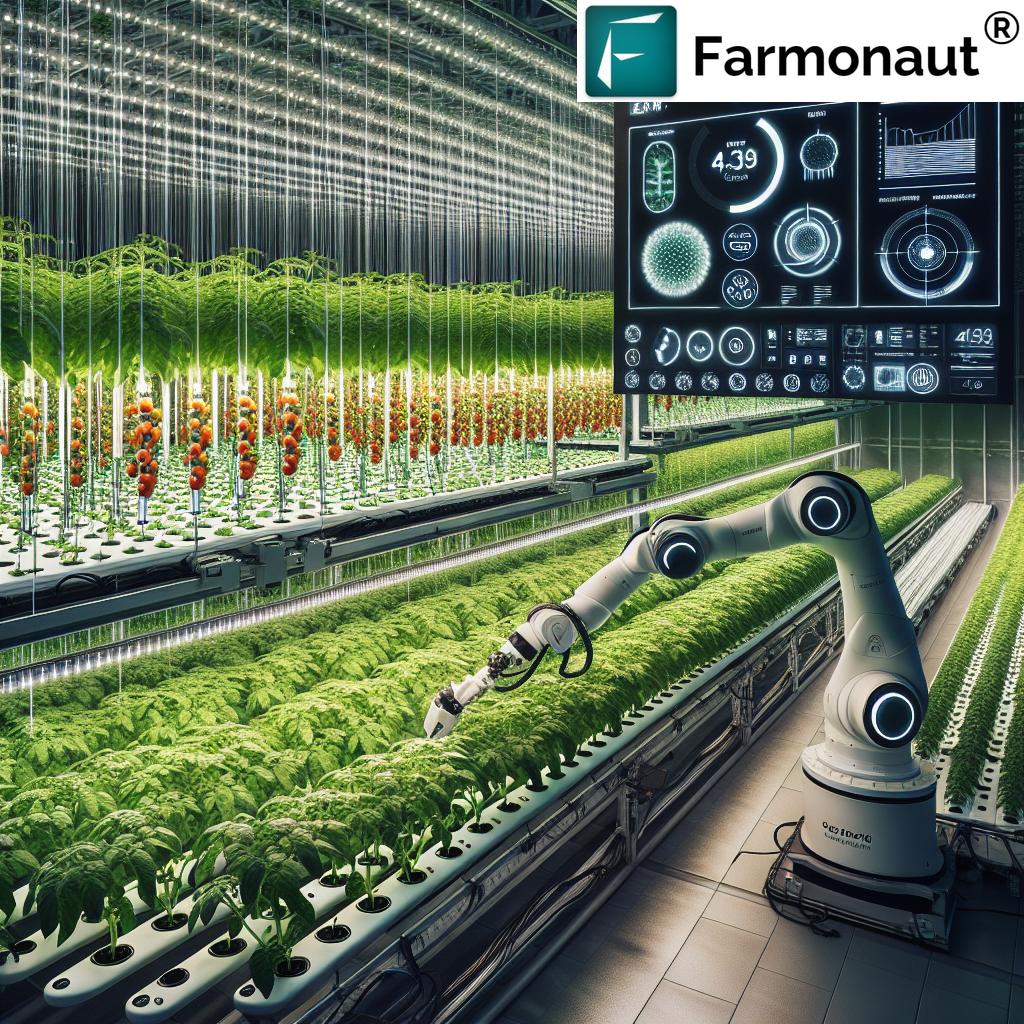Groundbreaking Research: Purdue University’s PECASE Winners Push Boundaries in STEM Excellence
“Five Purdue University scientists received the Presidential Early Career Award for groundbreaking STEM research.”
“Purdue’s research initiatives span multiple fields, including chemical engineering, quantum information science, and early childhood mathematics education.”
In the ever-evolving landscape of scientific innovation, Purdue University has once again demonstrated its commitment to excellence in STEM research. We are thrilled to share the groundbreaking achievements of five exceptional scientists and engineers who have been honored with the prestigious Presidential Early Career Award for Scientists and Engineers (PECASE). This recognition not only highlights the individual brilliance of these researchers but also underscores Purdue’s position as a hub for cutting-edge research and development.
The Presidential Early Career Award: A Testament to STEM Excellence
The PECASE is the highest honor bestowed by the U.S. government on outstanding scientists and engineers who are beginning their independent research careers. It recognizes individuals who show exceptional promise for leadership in science and technology. At Purdue University, this award serves as a beacon of our dedication to fostering innovation and pushing the boundaries of scientific understanding.

Meet the Visionaries: Purdue’s PECASE Recipients
Let’s delve into the remarkable work of these five pioneers who are shaping the future of technology and education:
1. Rajamani Gounder: Revolutionizing Chemical Engineering
Dr. Rajamani Gounder, the R. Norris and Eleanor Shreve Professor of Chemical Engineering, has made significant strides in the field of catalysis and reaction engineering. His work with zeolite catalysts is particularly noteworthy:
- Pioneering research on porous crystals that play a crucial role in environmental sustainability
- Advancements in clean air technologies and energy-efficient processes
- Recipient of the Early Career Award in Catalysis from the American Chemical Society
Dr. Gounder’s research is paving the way for cleaner, more sustainable industrial processes, addressing global challenges in climate change and energy consumption.
2. Joseph Lukens: Quantum Leaps in Information Science
Associate Professor Joseph Lukens brings a unique perspective to the field of electrical engineering and quantum information science:
- Expertise in photonic quantum information processing
- Contributions to the advancement of quantum technologies and optical networking
- Former Wigner Fellow at Oak Ridge National Laboratory
Dr. Lukens’ work is at the forefront of quantum computing, promising to revolutionize data processing and secure communications.
3. David Purpura: Nurturing Early Mathematical Minds
Professor David Purpura, leading the Center for Early Learning at Purdue, is transforming how we approach early childhood mathematics education:
- Innovative research on the acquisition of mathematical skills in young children
- Development of children’s picture books to enhance early mathematical understanding
- Recipient of the prestigious Fulbright Global Scholar Award
Dr. Purpura’s work is crucial in laying the foundation for future STEM education and ensuring children are well-prepared for academic success.
4. Kevin Solomon: Harnessing the Power of Microbes
Adjunct Professor Kevin Solomon is breaking new ground in sustainable microbial processes:
- Pioneering research in metabolic engineering and synthetic biology
- Development of methods for reprogramming microbial metabolism
- Applications ranging from sustainable energy to novel therapeutics
Dr. Solomon’s work holds immense potential for addressing global challenges in energy production and healthcare.
5. Michelle Thompson: Unraveling the Mysteries of Space
Associate Professor Michelle Thompson’s research on “space weathering” is expanding our understanding of the cosmos:
- Study of the impact of space vacuum on rocks
- Insights into the distribution of water and minerals in the solar system
- Collaboration with NASA on asteroid sample analysis
Dr. Thompson’s work is instrumental in informing future space exploration efforts and deepening our knowledge of planetary science.
| Researcher Name | Field of Study | Key Research Area | Innovative Contribution | Potential Impact | Award Category |
|---|---|---|---|---|---|
| Rajamani Gounder | Chemical Engineering | Catalysis and Reaction Engineering | Zeolite Catalyst Development | Cleaner Air and Energy Efficiency | PECASE |
| Joseph Lukens | Electrical Engineering | Quantum Information Science | Photonic Quantum Processing | Advanced Quantum Technologies | PECASE |
| David Purpura | Human Development | Early Childhood Mathematics | Educational Tools for Math Skills | Enhanced Early Learning Outcomes | PECASE |
| Kevin Solomon | Agricultural Engineering | Sustainable Microbial Processes | Microbial Metabolism Reprogramming | Sustainable Energy and Therapeutics | PECASE |
| Michelle Thompson | Planetary Sciences | Space Weathering | Analysis of Space-Affected Rocks | Advanced Space Exploration Knowledge | PECASE |
Purdue University: A Catalyst for Innovation
Purdue University’s commitment to research excellence extends far beyond individual achievements. As one of the top public universities in the United States, Purdue has consistently demonstrated its dedication to innovation through strategic initiatives and groundbreaking programs.
- Ranked among the top 10 public universities in the U.S.
- Over 107,000 students across multiple campuses
- 13 consecutive years of tuition freeze, ensuring accessibility and affordability
Our university’s approach to fostering innovation is multifaceted, encompassing not only traditional academic research but also collaborative efforts with industry partners and government agencies.
Driving Advancements Across Disciplines
The breadth of research at Purdue University is truly remarkable, spanning various fields and addressing some of the most pressing global challenges:
Sustainable Technologies
Building on Dr. Gounder’s work in catalysis, Purdue researchers are developing new materials and processes to reduce environmental impact and improve energy efficiency. These efforts are crucial in the fight against climate change and the transition to a more sustainable future.
Quantum Information Science
Dr. Lukens’ research in quantum information processing is part of a larger initiative at Purdue to advance quantum technologies. This field has the potential to revolutionize computing, communications, and cryptography, with far-reaching implications for national security and technological innovation.
Education and Human Development
The work of Dr. Purpura in early childhood mathematics education exemplifies Purdue’s commitment to improving educational outcomes. By focusing on foundational skills, we are helping to create a stronger pipeline of future STEM professionals.
Biotechnology and Synthetic Biology
Dr. Solomon’s groundbreaking research in metabolic engineering aligns with Purdue’s broader efforts in biotechnology. These advancements have the potential to transform industries ranging from agriculture to pharmaceuticals, addressing global challenges in food security and healthcare.
Space and Planetary Sciences
Dr. Thompson’s work on space weathering contributes to Purdue’s rich history in space exploration and planetary science. As we look to the future of space travel and potential colonization of other planets, this research provides critical insights into the challenges we may face.

The Impact of Purdue’s Research on Society
The research conducted at Purdue University has far-reaching implications for society at large. From developing cleaner energy solutions to advancing healthcare technologies, our work touches lives in countless ways:
- Environmental Sustainability: Research in catalysis and sustainable processes contributes to cleaner air and more efficient energy use.
- Technological Advancement: Quantum information science and advanced materials research drive innovation in computing and communications.
- Educational Improvement: Early childhood education research enhances learning outcomes and prepares future generations for success in STEM fields.
- Health and Medicine: Breakthroughs in biotechnology and synthetic biology pave the way for new treatments and therapies.
- Space Exploration: Planetary science research informs future missions and deepens our understanding of the universe.
At Purdue, we believe that research excellence is not just about academic achievement but about making a tangible difference in the world. Our PECASE winners exemplify this commitment to impactful research that addresses real-world challenges.
Fostering the Next Generation of STEM Leaders
The recognition of these five outstanding researchers through the Presidential Early Career Award is not just a testament to their individual achievements but also to Purdue’s role in nurturing talent and fostering innovation. We are committed to creating an environment where young scientists and engineers can thrive, pushing the boundaries of their fields and making groundbreaking discoveries.
Our approach to fostering STEM excellence includes:
- State-of-the-art research facilities and laboratories
- Interdisciplinary collaboration opportunities
- Strong partnerships with industry and government agencies
- Mentorship programs connecting students with leading researchers
- Emphasis on translating research into real-world applications
By investing in our researchers and providing them with the resources they need to succeed, we are not only advancing scientific knowledge but also preparing the next generation of STEM leaders to tackle global challenges.
The Future of STEM Research at Purdue
As we celebrate the achievements of our PECASE winners, we also look to the future of STEM research at Purdue University. Our commitment to innovation and excellence remains unwavering, and we continue to invest in areas that have the potential to transform society:
- Artificial Intelligence and Machine Learning
- Advanced Manufacturing Technologies
- Climate Change Mitigation and Adaptation
- Cybersecurity and Data Science
- Personalized Medicine and Healthcare Technology
These areas of focus represent the intersection of critical societal needs and Purdue’s strengths in research and innovation. By concentrating our efforts on these fields, we aim to continue our tradition of groundbreaking discoveries and impactful research.
Conclusion: A Legacy of Innovation
The recognition of five Purdue University researchers with the Presidential Early Career Award for Scientists and Engineers is a proud moment for our institution. It reflects our ongoing commitment to fostering excellence in STEM research and education. As we celebrate these achievements, we remain focused on our mission to advance knowledge, tackle global challenges, and prepare the next generation of scientific leaders.
The groundbreaking work of Drs. Gounder, Lukens, Purpura, Solomon, and Thompson exemplifies the spirit of innovation that drives Purdue forward. Their contributions to chemical engineering, quantum information science, early childhood education, sustainable microbial processes, and planetary science are not just academic achievements—they are stepping stones towards a better future for all.
As we look ahead, Purdue University remains dedicated to pushing the boundaries of scientific understanding, fostering interdisciplinary collaboration, and translating research into real-world solutions. Our commitment to excellence in STEM research is unwavering, and we are excited about the possibilities that lie ahead.
We invite you to join us on this journey of discovery and innovation. Whether you’re a student aspiring to make your mark in STEM, a researcher looking for collaborative opportunities, or simply someone passionate about the power of science to change the world, Purdue University offers a vibrant community where ideas flourish and breakthroughs happen.
FAQ Section
Q: What is the Presidential Early Career Award for Scientists and Engineers (PECASE)?
A: The PECASE is the highest honor bestowed by the U.S. government on outstanding scientists and engineers beginning their independent research careers. It recognizes individuals who show exceptional promise for leadership in science and technology.
Q: How many Purdue University researchers received the PECASE award?
A: Five Purdue University researchers were honored with the Presidential Early Career Award for Scientists and Engineers.
Q: What fields of study are represented by Purdue’s PECASE winners?
A: The winners represent diverse fields including chemical engineering, quantum information science, early childhood mathematics education, sustainable microbial processes, and planetary sciences.
Q: How does Purdue University support STEM research excellence?
A: Purdue supports STEM research excellence through state-of-the-art facilities, interdisciplinary collaboration opportunities, industry partnerships, mentorship programs, and a focus on translating research into real-world applications.
Q: What are some of the future focus areas for STEM research at Purdue?
A: Future focus areas include artificial intelligence and machine learning, advanced manufacturing technologies, climate change mitigation, cybersecurity and data science, and personalized medicine and healthcare technology.
As we conclude this exploration of Purdue University’s commitment to STEM excellence, it’s worth noting that innovation in agriculture and technology extends beyond academic institutions. Companies like Farmonaut are also pushing boundaries in agricultural technology, offering satellite-based farm management solutions that complement academic research in sustainable agriculture.
For those interested in exploring cutting-edge agricultural technology, Farmonaut offers a range of tools:
For developers interested in integrating satellite and weather data into their own systems, Farmonaut offers an API with comprehensive developer documentation.
Earn With Farmonaut: Affiliate Program
Earn 20% recurring commission with Farmonaut’s affiliate program by sharing your promo code and helping farmers save 10%. Onboard 10 Elite farmers monthly to earn a minimum of $148,000 annually—start now and grow your income!
Farmonaut Subscriptions
As we continue to witness advancements in both academic research and practical applications of technology in agriculture, it’s clear that the future of STEM is bright. Whether through groundbreaking university research or innovative agricultural technology solutions, the path forward is paved with exciting possibilities for a more sustainable and technologically advanced world.
















